After 50 years of efforts women finally received suffrage. It took many suffragists to break through all the barriers, to get such a monumental right.
The first states to pass suffrage were, Wyoming in 1869, Colorado in 1893, Utah in 1896, and Idaho in 1896.
Anthony's Trial
In Rochester, New York, 1872 Anthony voted for president. This was considered illegal at the time and Anthony was arrested and jailed. She was thrilled to be jailed because she could appeal to the Supreme Court. Her lawyer paid her bail, erasing all hopes of appeal.
During Anthony’s trial, the judge ruled her guilty before the trial even occurred, which at the time was legal.
“Anthony immediately responded. ‘May it please your honor,’ she said, ‘I shall never pay a dollar of your unjust penalty. All the stock in trade I possess is a $10,000 debt, incurred by publishing my paper—The Revolution—four years ago, the sole object of which was to educate all women to do precisely as I have done, rebel against your manmade, unjust, unconstitutional forms of law, that tax, fine, imprison and hang women, while they deny them the right of representation in the Government; and I shall work on with might and main to pay every dollar of that honest debt, but not a penny shall go to this unjust claim. And I shall earnestly and persistently continue to urge all women to the practical recognition of the old revolutionary maxim that ‘Resistance to tyranny is obedience to God.’’” - Winifred Conkling, Votes for Women pg. 140-141
Anthony’s $100 fine to this day has never been paid.
A transcript of Anthony's speech at her trial:
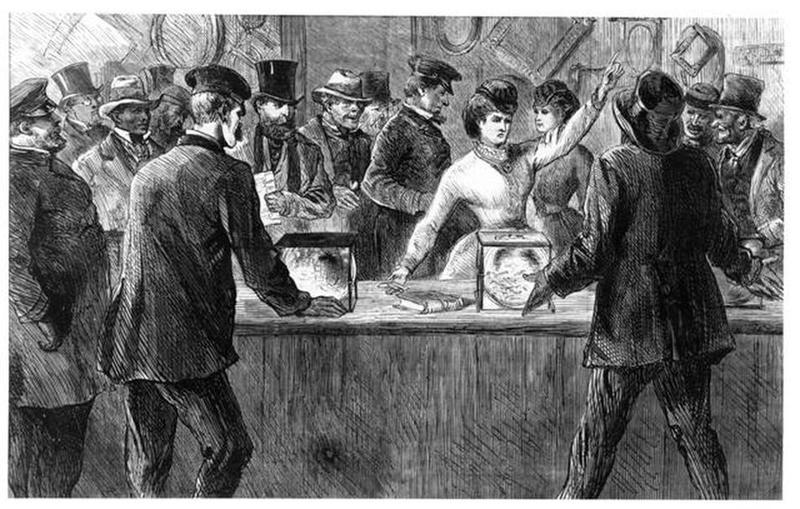
Anthony casting her vote. What You Didn't Know About Susan B. Anthony, History Daily
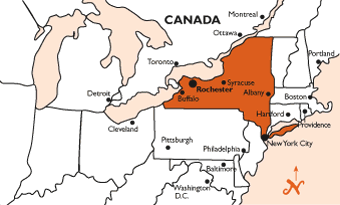
Rochester, New York. Directions, Rochester Institute of Technology
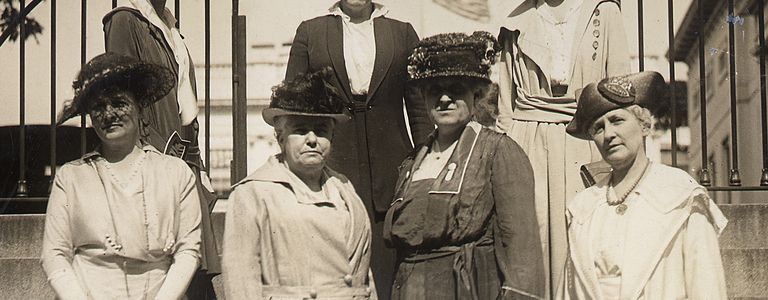
Founders of NAWSA. Women's Suffrage Quiz, ThoughtCo.
Friends and fellow citizens: I stand before you tonight under indictment for the alleged crime of having voted at the last presidential election, without having a lawful right to vote. It shall be my work this evening to prove to you that in thus voting, I not only committed no crime, but, instead, simply exercised my citizen's rights, guaranteed to me and all United States citizens by the National Constitution, beyond the power of any state to deny.
The preamble of the Federal Constitution says:
"We, the people of the United States, in order to form a more perfect union, establish justice, insure domestic tranquillity, provide for the common defense, promote the general welfare, and secure the blessings of liberty to ourselves and our posterity, do ordain and establish this Constitution for the United States of America."
It was we, the people; not we, the white male citizens; nor yet we, the male citizens; but we, the whole people, who formed the Union. And we formed it, not to give the blessings of liberty, but to secure them; not to the half of ourselves and the half of our posterity, but to the whole people - women as well as men. And it is a downright mockery to talk to women of their enjoyment of the blessings of liberty while they are denied the use of the only means of securing them provided by this democratic-republican government - the ballot.
For any state to make sex a qualification that must ever result in the disfranchisement of one entire half of the people, is to pass a bill of attainder, or, an ex post facto law, and is therefore a violation of the supreme law of the land. By it the blessings of liberty are forever withheld from women and their female posterity.
To them this government has no just powers derived from the consent of the governed. To them this government is not a democracy. It is not a republic. It is an odious aristocracy; a hateful oligarchy of sex; the most hateful aristocracy ever established on the face of the globe; an oligarchy of wealth, where the rich govern the poor. An oligarchy of learning, where the educated govern the ignorant, or even an oligarchy of race, where the Saxon rules the African, might be endured; but this oligarchy of sex, which makes father, brothers, husband, sons, the oligarchs over the mother and sisters, the wife and daughters, of every household - which ordains all men sovereigns, all women subjects, carries dissension, discord, and rebellion into every home of the nation.
Webster, Worcester, and Bouvier all define a citizen to be a person in the United States, entitled to vote and hold office.
The only question left to be settled now is: Are women persons? And I hardly believe any of our opponents will have the hardihood to say they are not. Being persons, then, women are citizens; and no state has a right to make any law, or to enforce any old law, that shall abridge their privileges or immunities. Hence, every discrimination against women in the constitutions and laws of the several states is today null and void, precisely as is every one against Negroes.
Susan B. Anthony - 1873
National American Woman Suffrage Association
Susan B. Anthony died March 13, 1906, 14 years before suffrage was official. When Anthony passed, it marked the end of the first era of suffragists and a new group of women took control.
The National American Woman Suffrage Association (NAWSA), was a foundation founded by Susan B. Anthony, Elizabeth Cady Stanton, Carrie Chapman Catt, and Lucy Stone. This foundation gave those who were interested information on suffrage and a means for acting upon what they believed. Throughout 1910-1914, the NAWSA upped their efforts to pass suffrage and had Washington, California, Kansas, Oregon, and Arizona give women voting rights.
After Anthony
Like Anthony, a prominent and radical figure in the second wave of suffragists is Alice Paul. Paul organized the picketing outside of the White House and the Suffrage Parade in Washington D.C.
Picketing was a new and strange idea to many who saw the picketers. The Silent Sentinels carried 8-foot poles supporting banners. After 6 months President Wilson was tired of the picketing and ordered anyone outside to be arrested. Suffragists were enthusiastic about this, because it brought attention to suffrage. The suffragists in jail went on a hunger strike. The warden ordered force-feedings.
“The President can pardon us again... and again and again, but... picketing will continue, and sooner or later, he will have to do something about it.” - Alice Paul
“Mr. President how long must women wait to get their liberty? Let us have the rights we deserve.” -Alice Paul
January 9, 1918, President Woodrow Wilson spoke in favor of women’s suffrage and the next day the House of Representatives gathered to vote. Eight months later the bill failed to pass through the Senate. When the bill was introduced again, it was passed 56 to 25 in the Senate. Now 36 of the 48 states must ratify the bill.
Wisconsin was the first state to ratify, followed by Illinois, and then Michigan. By spring 1920, thirty-five states ratified the amendment and eight states voted against ratification. Those states include Georgia, Alabama, South Carolina, Virginia, Maryland, Mississippi, Louisiana, and Delaware.
Tennessee would be the state to bring about a major change in U.S. policy. August 18, 1920 members of the Tennessee House of Representatives gathered. The ratification already passed through the Senate. When the votes were counted it was a tie of 48 for both sides. They had a recount and the only vote to change was Harry Burn’s. The 19th Amendment was ratified, and women could legally vote.
“We’re half the people; we should be half the Congress.” - Jeanette Rankin, first woman elected to Congress
“There’s nothing complicated about equality.” - Alice Paul
“I never doubted that equal rights was the right direction. Most reforms, most problems are complicated. But to me there is nothing complicated about ordinary equality.” - Alice Paul
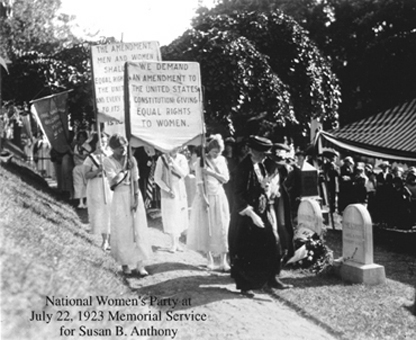
Anthony's Burial Site. People gather at her grave after they vote. National Women's Party at July 22, 1923 Memorial Service for Susan B. Anthony, University of Rochester
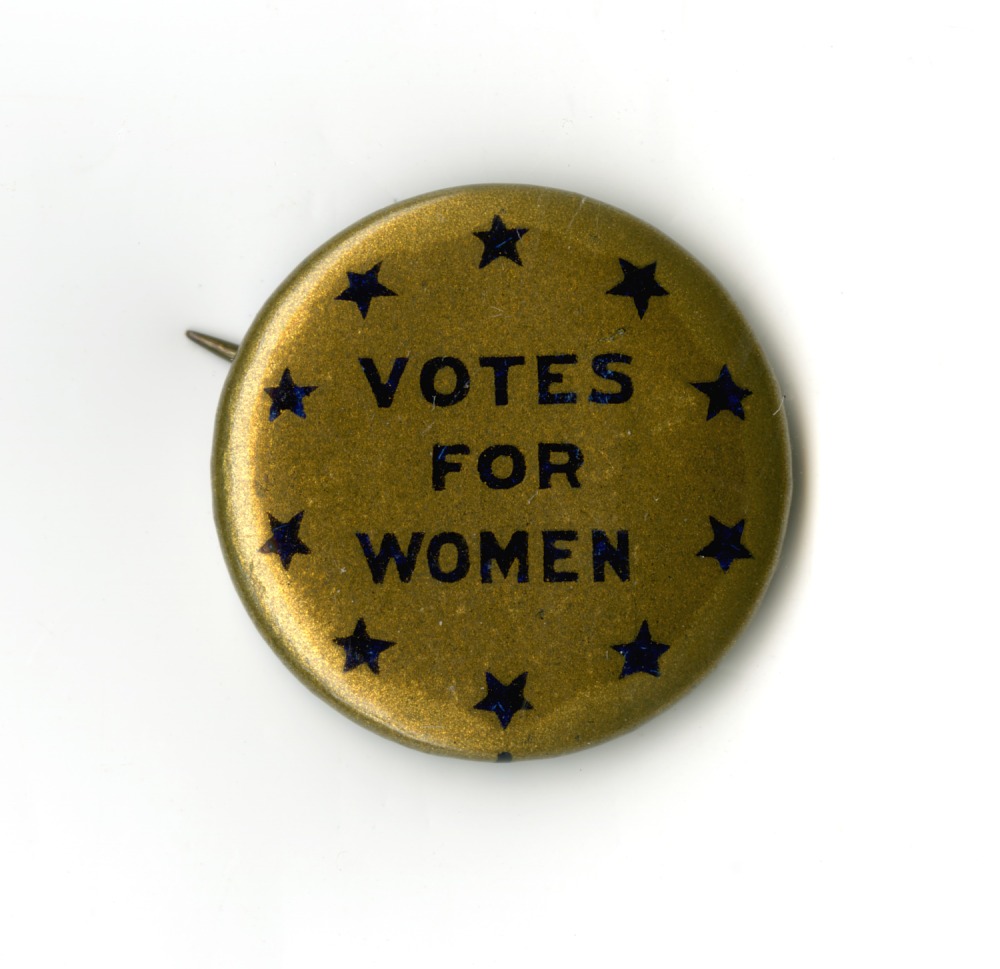
Button that suffragists wore during the suffrage parade. Woman Suffrage Button, Smithsonian National Museum of American History.
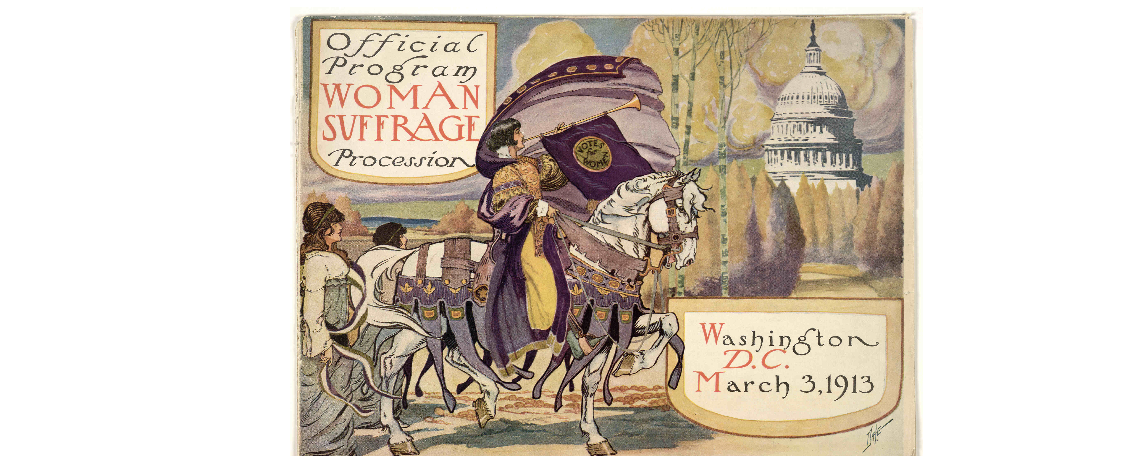
Woman Suffrage March in Washington D.C. program. Image 1 of Official program woman suffrage procession. Washington, D.C. March 3, 1913, Library of Congress.
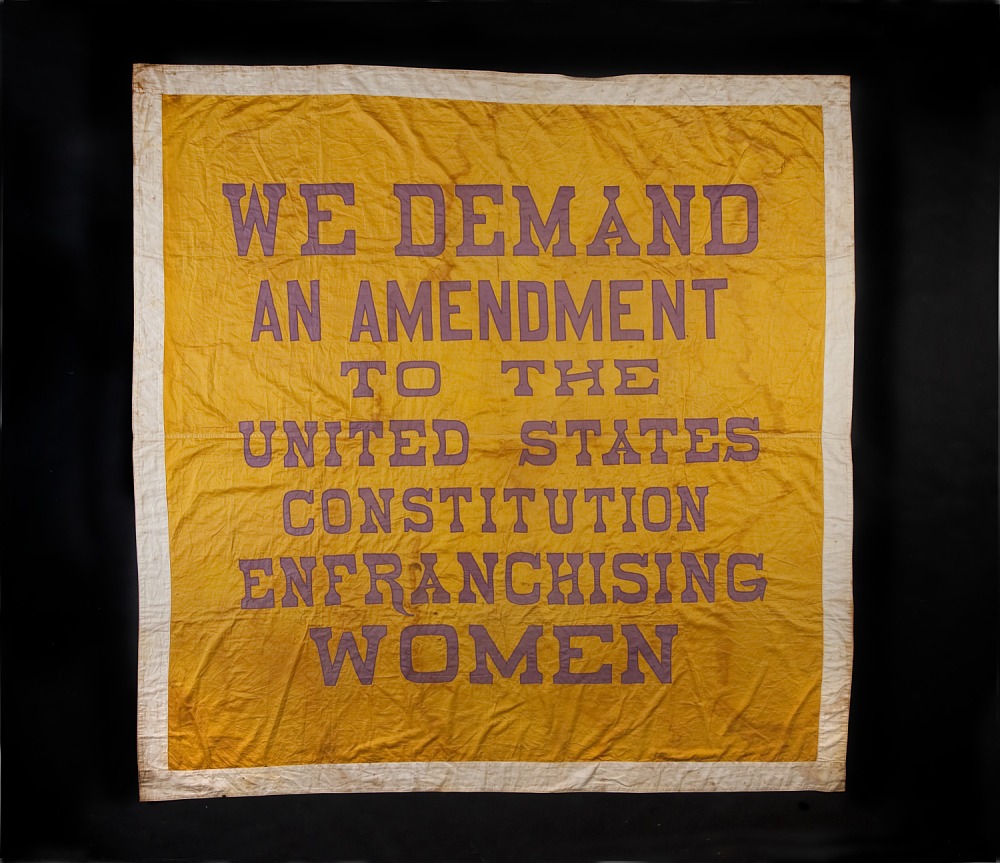
Suffrage Banner. Woman Suffrage Banner, 1914-1917, National Museum of American History.
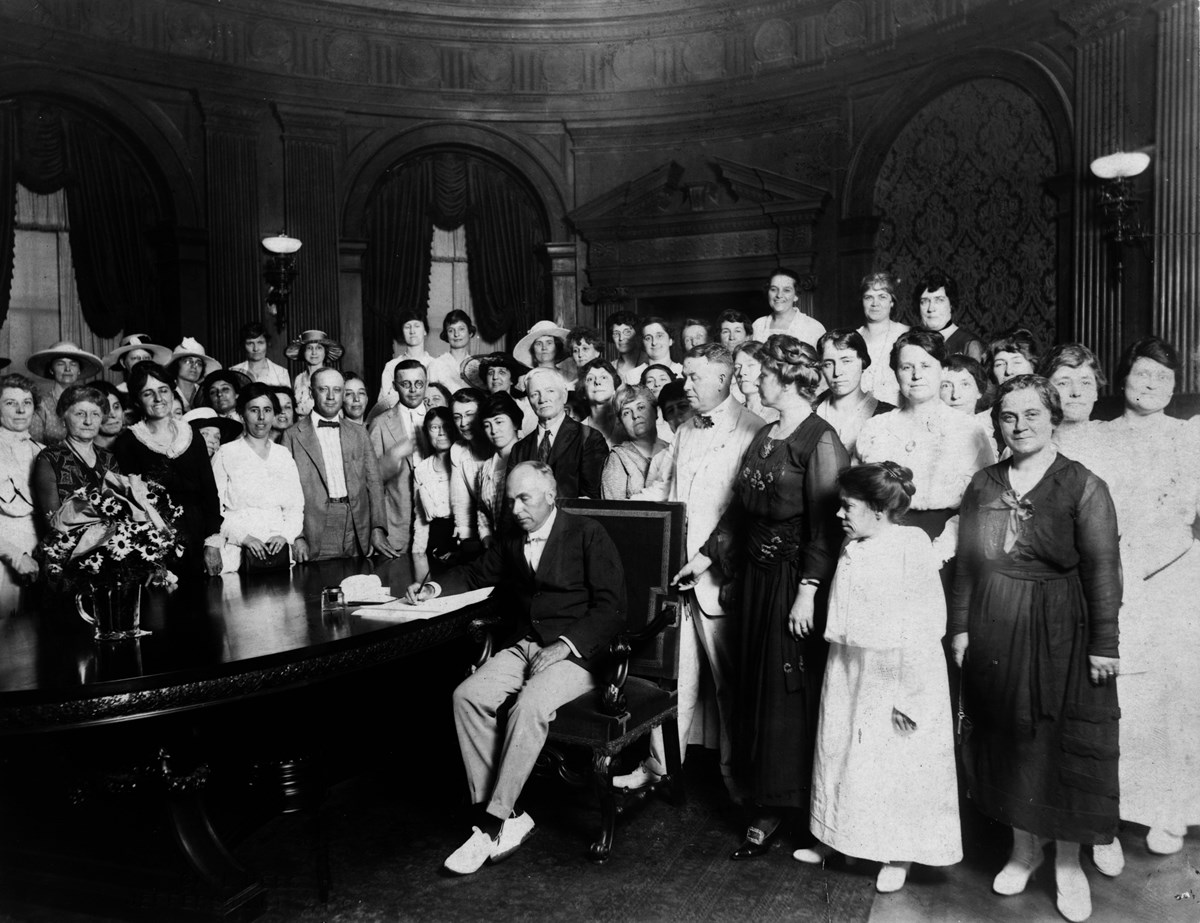
Missouri was the 11th state to ratify. Gov. Gardner Signing Resolution Ratifying 19th Amendment, National Park Service.
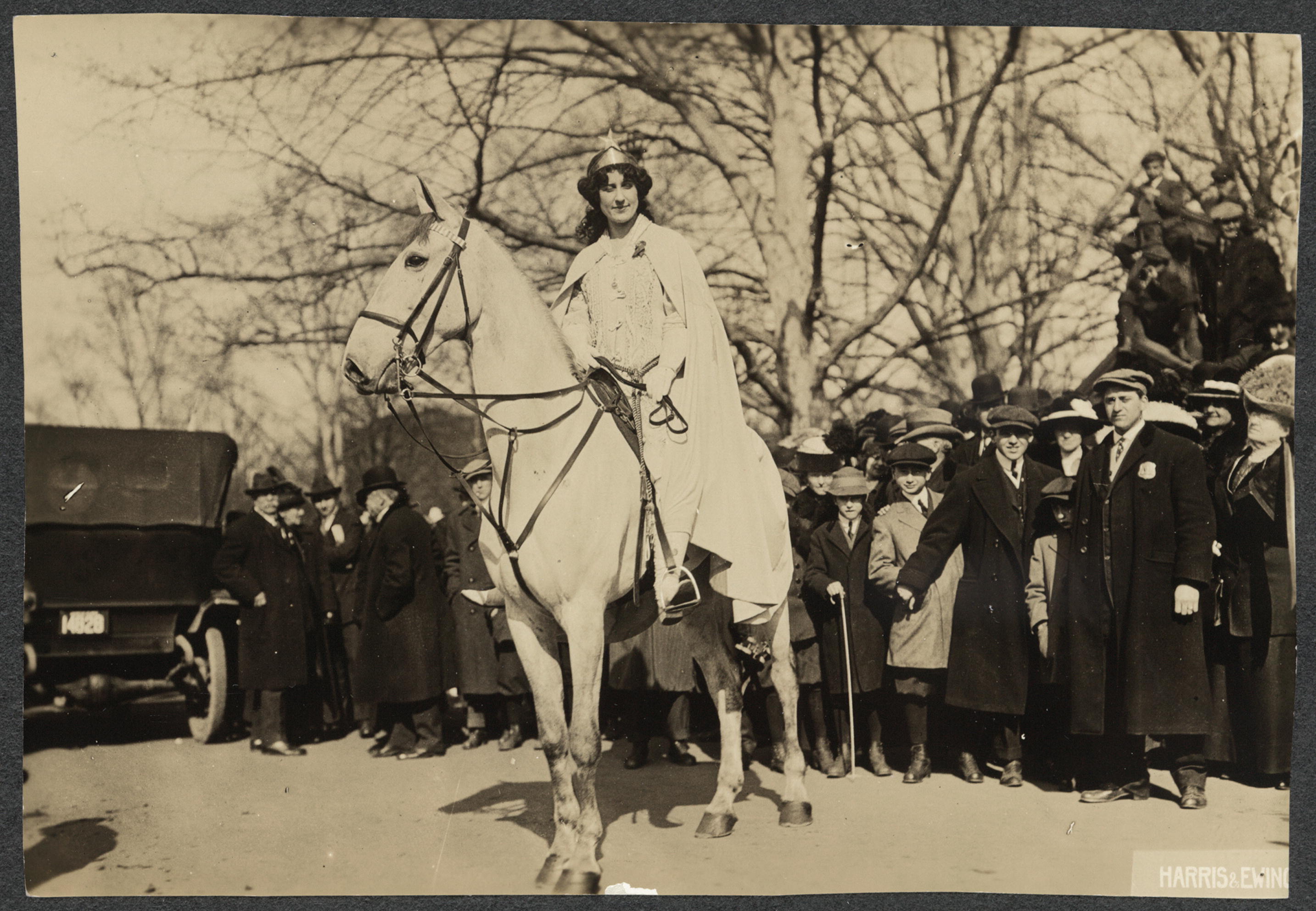
Inez Milholland Boissevain leader of the suffrage parade in Washington U.S. Inez Milholland Boissevain preparing to lead the March 3, 1913, suffrage parade in Washington, D.C., Library of Congress